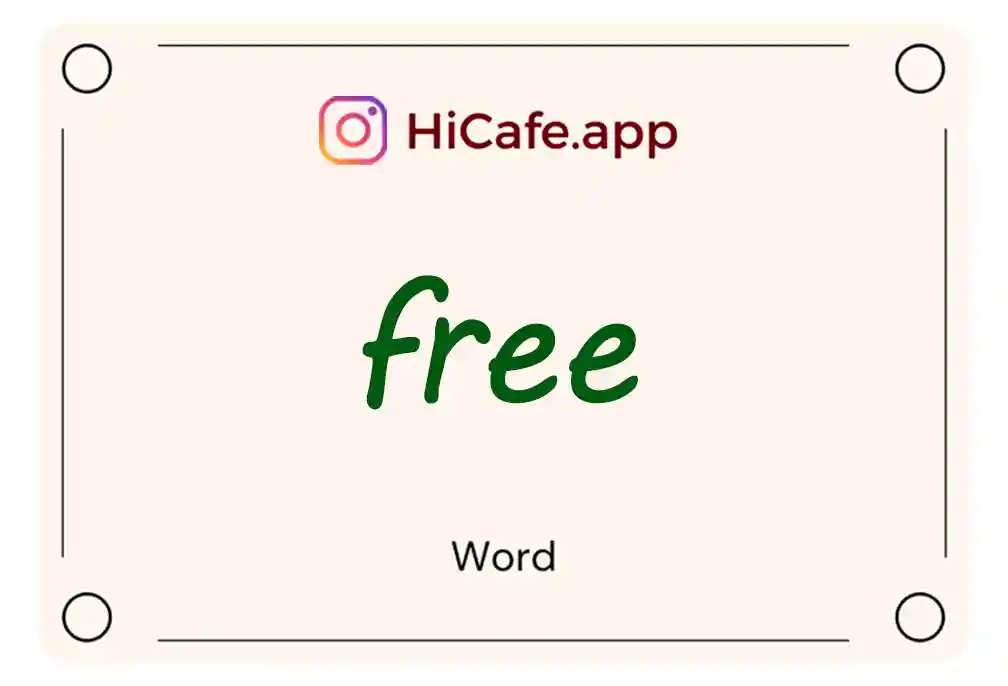Word of the Day: Free
We usually use the word “free” as an adjective or as a verb. It has many interesting applications.
You probably hear it most often as an adjective when there is absolutely no cost for something:
- These books are free. (You don’t have to pay any money for them.)
- We saw a free concert last night.
- You can use this website for free.
We also use “free” to describe living conditions and political expression:
- Feel free to say what you like.
- Do you feel free to express yourself in the country where you live?
- You are free to come and go during the conference.
- When you retire, you are free to do what you want to do every day.
- Are you free later on today? (free = to have time)
- What time are you free?
You can add “free” to the end of a noun to explain the absence of something:
- This pop is sugar free. (There’s no sugar in it.)
- She leads a carefree life. (She has no concerns.)
- He’s finally cancer free. (The cancer is gone.)
As a verb, the word “free” means to release or let something go.
| simple | past | past participle |
|---|---|---|
|
free
|
freed
|
freed
|
- Tim freed the rabbit from his cage. (He let the rabbit out of his cage.)
- The man was freed from prison after serving eight years.
- Can you free up sometime to meet me next week?
- Tanya freed herself from her debt by paying off all of her credit cards.
- Abraham Lincoln freed the slaves from slavery with the Emancipation Proclamation.
Essential English Dictionary
Visit the Popular English Words Beginning with F page to see the list of all words starting with letter F. For seeing the HiCafe dictionary, visit the Popular English Words with Meaning page.



